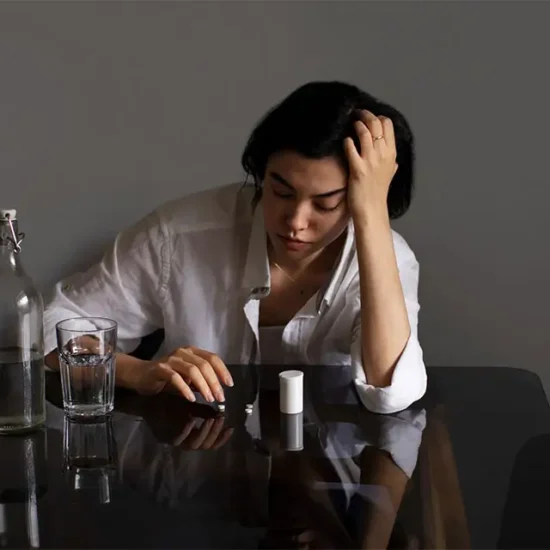The decision to overcome addiction is a significant leap toward a brighter, healthier future. Navigating the myriad of addiction recovery treatment centers available can feel daunting, leaving you wondering: “Where do I even begin?”
Don’t let confusion hinder your progress. This guide is here to serve as your compass, steering you towards the perfect center that aligns with your unique needs and sets you firmly on the path to healing. Imagine yourself, months from now, radiating newfound strength, clarity, and the joy of a life unburdened by addiction. This transformation can be your reality, and choosing the right treatment center is the crucial first step.
Remember, you’re not alone in this quest. Thousands of individuals across the country are actively seeking recovery, and countless addiction recovery treatment centers are dedicated to guiding them towards a brighter future. This guide will empower you to navigate the options with confidence, equipping you with the knowledge to ask the right questions, prioritize your well-being, and ultimately, find the ideal haven for your recovery journey.
So, take a deep breath, release any anxieties, and embark on this empowering exploration. Together, let’s find the treatment center that unlocks your potential and propels you towards a life of healing and lasting fulfillment.
Understanding Addiction and the Imperative for Treatment
Addiction, a complex and often misunderstood phenomenon, infiltrates lives, affecting individuals physically, mentally, and emotionally. Whether rooted in substances or behaviors, addiction is marked by a compulsive need that, despite its detrimental consequences, persists. To truly comprehend the gravity of addiction and the critical need for treatment, it is essential to delve into its intricacies.
The Grip of Addiction:
- Understanding the Brain: Addiction rewires the brain’s reward system, hijacking dopamine release and creating intense cravings. This chemical imbalance fuels compulsive drug-seeking behavior, even when the individual understands the negative consequences.
- Beyond Just “Choice”: While initial use may be voluntary, addiction alters brain chemistry, diminishing control and making quitting extremely challenging. Labeling individuals as simply “weak” or lacking willpower perpetuates stigma and hinders them from seeking help.
- A Spectrum of Severity: Addiction doesn’t come in one form. It manifests differently in individuals, varying in severity and type of substance used. Recognizing this spectrum fosters understanding and ensures tailored treatment approaches.
The Signs and Symptoms:
- Uncontrollable Use: Engaging in substance use despite negative consequences (physical, social, financial) is a key indicator.
- Tolerance and Dependence: Needing increasing amounts of the substance to achieve the same effects and experiencing withdrawal symptoms when attempting to stop are telltale signs.
- Life Disruption: Neglecting responsibilities, strained relationships, and prioritizing substance use over other activities point towards addiction’s impact on various aspects of life.
Why Treatment Matters:
- Breaking the Cycle: Treatment offers a pathway to recovery by addressing the underlying causes, managing withdrawal symptoms, and developing coping mechanisms to resist cravings.
- Individualized Support: Effective treatment plans recognize the uniqueness of each individual, offering a combination of therapies, medication, and support groups to cater to specific needs.
- Regaining Control: By working through the emotional and psychological aspects of addiction, individuals reclaim control over their lives, rebuild relationships, and rediscover their full potential.
- Hope for the Future: Recovery is possible, and treatment is the vital catalyst. Investing in treatment offers a chance for a healthier, happier, and more fulfilling life.
Seeking Help and Moving Forward:
- Breaking the Stigma: Openly discussing addiction and encouraging individuals to seek help is crucial. Resources and support networks are readily available, removing the shame and fear associated with reaching out.
- Empowering Choices: Understanding addiction fosters empathy and empowers individuals and families to make informed decisions about seeking professional help.
- Together We Rise: With supportive communities and readily available treatment options, we can create a society where individuals battling addiction find the strength and resources to reclaim their lives.
Remember, addiction is a treatable disease, and seeking help is a sign of strength. By understanding its nature and embracing treatment, we can empower individuals to break free from its grip and pave the way for a brighter future.
Different types of addiction recovery treatment programs
Various addiction recovery treatment programs cater to the diverse needs of individuals seeking to overcome substance abuse and addictive behaviors. Here are different types of programs designed to address various aspects of the recovery journey:
1. Inpatient Rehabilitation Programs:
- Inpatient or residential programs involve individuals residing at a treatment facility for a specified duration. This immersive approach provides intensive care, structured routines, and a supportive environment to address severe addiction.
2. Outpatient Treatment Programs:
- Outpatient programs offer flexibility, allowing individuals to attend therapy and counseling sessions while living at home. This option is suitable for those with a supportive environment and milder addiction issues.
3. Intensive Outpatient Programs (IOP):
- IOPs provide a higher level of care than standard outpatient programs. Participants attend more frequent and extended sessions, often resembling the intensity of inpatient programs, while still maintaining the ability to live at home.
4. Partial Hospitalization Programs (PHP):
- PHPs offer a structured and supportive environment during the day, with individuals returning home in the evenings. This balance provides a comprehensive approach to treatment while allowing for a degree of independence.
5. Medication-Assisted Treatment (MAT) Programs:
- MAT combines prescribed medications with counseling and therapy to address substance use disorders. This approach is particularly effective for opioid and alcohol addiction, helping manage cravings and withdrawal symptoms.
6. Dual Diagnosis Treatment Programs:
- Dual diagnosis programs are designed for individuals with co-occurring mental health disorders and substance use disorders. These integrated programs address both aspects simultaneously to provide comprehensive care.
7. Holistic and Alternative Therapy Programs:
- These programs focus on holistic approaches such as yoga, meditation, art therapy, and acupuncture. They emphasize the mind-body connection and offer alternative methods for self-expression and healing.
8. 12-Step Programs:
- Programs like Alcoholics Anonymous (AA) and Narcotics Anonymous (NA) follow a structured, peer-supported approach to recovery. Participants work through the 12 steps and attend regular meetings for ongoing support.
9. Cognitive-Behavioral Therapy (CBT) Programs:
- CBT programs focus on identifying and changing unhealthy behaviors and thought patterns. These evidence-based programs equip individuals with coping strategies and tools for long-term recovery.
10. Family-Based Treatment Programs:
- Family therapy is integral to addiction recovery. Programs that involve families in the treatment process address familial dynamics, and communication patterns, and provide support for both the individual in recovery and their loved ones.
11. Aftercare and Continuing Care Programs:
- Aftercare programs offer ongoing support after the initial treatment phase. This may include follow-up counseling, support groups, and strategies to maintain recovery in the long term.
Choosing the right type of addiction recovery treatment program depends on individual needs, the severity of addiction, and the presence of co-occurring conditions. A tailored and comprehensive approach increases the likelihood of successful and sustained recovery.
How to choose the right addiction recovery treatment center
Selecting the appropriate addiction recovery facility marks a pivotal moment toward achieving sustained sobriety and personal growth. The journey to recovery is deeply personal, and finding a center tailored to your specific needs significantly enhances the likelihood of success. Here are essential factors to contemplate:
Care Options:
- Inpatient Care: Offers round-the-clock supervision, ideal for severe cases or those requiring medical detox.
- Outpatient Care: Provides flexibility, allowing individuals to reside at home while participating in therapy and support sessions.
- Partial Hospitalization (PHP): Intensive daytime programs providing structured support.
Treatment Approaches:
- Individual Therapy: Tailored sessions to address underlying issues and cultivate coping strategies.
- Group Therapy: Sharing experiences and insights within a supportive community setting.
- Family Therapy: Involvement of loved ones fosters holistic recovery.
- Medications: Utilized for detoxification or managing withdrawal symptoms and concurrent mental health conditions.
- Holistic Therapies: Practices such as yoga and meditation promote relaxation and self-awareness.
Additional Considerations:
- Licensing and Accreditation: Ensure compliance with state regulations and accreditation by reputable bodies.
- Staff Qualifications: Assess the proficiency and experience of therapists and staff members.
- Treatment Philosophy: Seek alignment with your personal values and beliefs regarding recovery.
- Cost and Insurance Coverage: Understand financial commitments and explore available insurance options.
- Location and Amenities: Consider preferences regarding setting, amenities, and proximity to home.
- Success Rates: Inquire about the center’s track record and outcomes for similar cases.
The Bottom Line
The transformative power of addiction recovery treatment centers cannot be overstated. These centers serve as beacons of hope for individuals grappling with substance abuse, offering comprehensive care tailored to each person’s unique journey to sobriety. Through a combination of evidence-based therapies, holistic approaches, and dedicated staff, addiction recovery treatment centers provide the support and resources necessary for individuals to reclaim their lives from the grips of addiction.
As individuals get on this path of healing, they not only rediscover their sense of self but also cultivate the resilience and skills needed to navigate life’s challenges with newfound strength. By embracing the opportunity for change and seeking assistance from reputable addiction recovery treatment centers, individuals can embark on a journey toward lasting recovery and a brighter future.
For more information on how our center at Bhouse.net can support you or your loved ones on the journey to recovery, please don’t hesitate to reach out. Your path to healing begins here.










